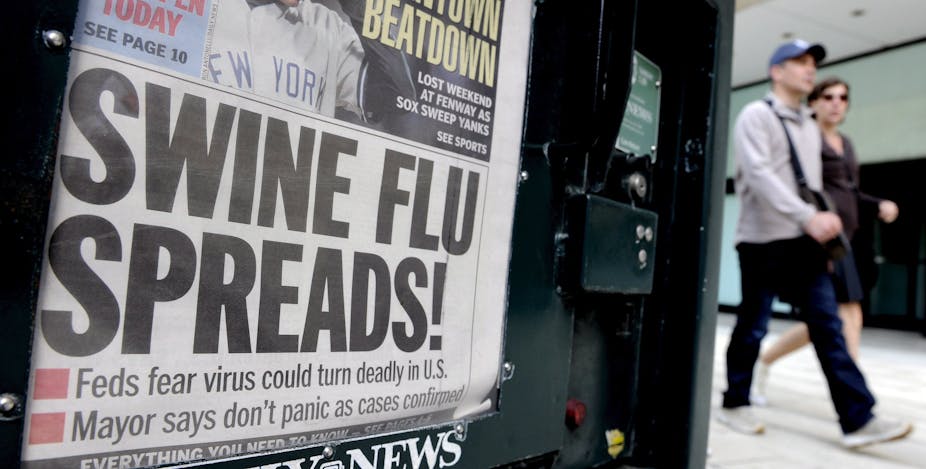The “spin” sometimes found in media reports emphasising the benefits of new medical treatments has more to do with the abstracts of studies published in scientific journals than misrepresentation by the media, according to a new French study.
In a study of 70 press releases relating to the results of clinical trials, published in PLOS Medicine, a team of researchers led by Isabelle Boutron from the University of Paris found 47% contained spin.
The researchers also found 40% of study abstracts published in scientific journals contained spin, with 51% of the news stories that were written as a result carrying the same spin found in the press release and abstract.
The results highlight a tendency for press releases and associated media coverage of controlled trials to place emphasis on the benefits of experimental treatments, the researchers said in a statement.
“This tendency is probably related to the presence of spin in conclusions of the scientific article’s abstract,” they conclude.
Researchers are being taught to “sex up” press releases, said Amanda Wilson, from the School of Medicine and Public Health at the University of Newcastle.
Dr Wilson also runs Media Doctor Australia, a site dedicated to improving the accuracy of medical news reporting.
She said while American pharmaceutical companies were very good at eliciting favourable news coverage, in Australia this is not the case, and it’s researchers and research institutes that are instead seeking influence.
“This is an international phenomenon as media profile becomes currency for researchers,” Dr Wilson said.
“It’s dog eat dog, you’re fighting for funding constantly and having a media profile or a paper published in the media increases your currency as a researcher. You can’t survive without that.”
Dr Wilson believes spin is being encouraged, but argues those responsible should be held to the ethical foundations of research.
“We have extremely tight guidelines on ethical practice in research, so you would never lie or spin to a funding company, or the ethics committee, you wouldn’t deceive patients in a trial, you would never lie to a journal or fudge results, but when it comes to releasing the information to the media and the public you’re encouraged to do that.”
Ian Haines, Adjunct Clinical Associate Professor at Monash University, agreed abstracts written about expensive new therapies in particular are often not an accurate reflection of the study’s findings.
“The lack of access to the primary data and the frequent conflicts of interest between the authors and the company sponsoring the study are cause for deep concern,” he said.
Professor Haines has in the past argued for independently written abstracts of articles and full access for the reviewers and readers to the raw data.
“So many readers, medical and otherwise only have time to read the abstract and/or press release and it is vital that it is accurate and not full of spin, misreporting or selective reporting.”
He added that reporters also need to ask more questions and not accept media releases verbatim.

